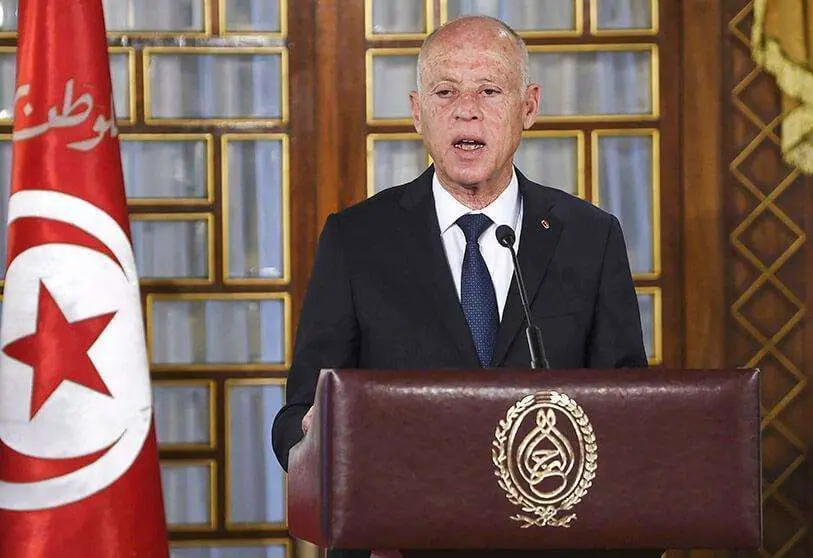Kaïs Saied's new constitution: less Islamist, more presidentialist and bicameral

Kaïs Saied has been able to play on expectations. After months of siege by the Islamist opposition, the calculating professor of constitutional law presented his draft of a new constitution to completely reshape the country.
It is the fourth Magna Carta in Tunisia's recent history, if one takes into account the so-called 'Petite Constitution' of 2011, an interim provision adopted after the overthrow of Ben Ali and replaced by the 2014 Constitution, in which Saied participated, but which he ended up considering inadequate for the country.
The new text envisages a more presidentialist republic, in which Kaïs Saied would gain much more control. This power is articulated, among other measures, by giving preference to bills proposed by the president before parliament, which must be considered before others. The President would be supported by a government headed by a Prime Minister.
On the legislative side, the bicameral system returns to Tunisia, which was eliminated in the 2014 Constitution. The new text provides for two chambers. A National Assembly of People's Representatives, which could be equivalent to the French National Assembly, will coexist with a National Council of Regions. The latter will consist of a chamber of territorial representation in which members will be elected by the regional councils spread throughout the country. It is foreseen in the new constitution that budget laws and development plans will pass through both chambers for adoption in each five-year legislature.

Another point of particular note is the treatment of Islam in the new constitution. Sadok Belaïd, a jurist close to Saied who was tasked with drafting the constitution, said in an interview at the beginning of June that Islam would no longer be the state religion if the text is approved on 25 July.
"In the next Tunisian constitution, we will not speak of a state whose religion is Islam, but of Tunisia belonging to an Ummah whose religion is Islam. The Ummah and the state are two different things," Sado Belaïd told the media. The 'Ummah' is the Arabic term mentioned in the Qur'an and the Sahifat al-Madinah to refer to the Muslim community, which today can be interpreted from an internationalist point of view.
The 2014 constitution declares in its first article that 'Tunisia is a free, independent and sovereign state, Islam is its religion, Arabic its language and the Republic its regime'. Whereas the new Constitution makes no mention of Islam until Article 5, which reads "Tunisia is part of the Islamic Ummah, and the State alone must work to achieve the objectives of Islam while preserving the soul and honour".

If the new constitution is adopted, Tunisia would become the first Arab country in the Maghreb to abandon Islam as the official state religion. Saied's decision to incorporate this detail into the Magna Carta responds to the secularist ideology of the Tunisian president, whose main opponent is the Islamist parties. This is a strong message against Ennahda, which is supported mainly by Turkey and Qatar at the international level. Ennahda, until its 2016 General Congress, maintained a discourse of Islamic fundamentalism and aimed at the establishment of a pan-Arabist Islamic caliphate.
The new draft constitution will be voted on in a referendum on 25 July 2022 after a long political battle in which Kaïs Saied's government was under siege by the opposition led by the socialist trade unions and Ennahda. They now accuse Saied of proposing a constitution "tailor-made for him". Satirical cartoons of judges carving a tailored suit for the Tunisian president are circulating on social media.
In June, a commission of enquiry and advice organised by the Venice Commission, a body of the Council of Europe, ruled that Saied's legal aberrations were deeply damaging to the country's democracy, as well as fundamentally contrary to Tunisian law. The dossier was commissioned by the EU delegation in Tunis. The situation worsened when the judiciary revolted against Saied, which he dealt with by dismissing 57 judges from various courts. The new constitution does not provide for the right to strike or organise for members of the judiciary, nor for members of the military or law enforcement agencies.









